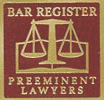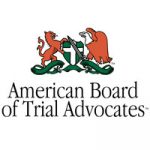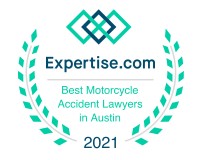© 2025 Byrd Davis Alden & Henrichson, LLP. All Rights Reserved.
Proving negligence forms the foundation of most personal injury lawsuits, yet many accident victims struggle to understand what evidence they need to build a successful case. Negligence occurs when someone fails to exercise reasonable care, resulting in harm to another person. While this concept may seem straightforward, establishing negligence in court requires meeting specific legal […]
Punitive damages serve as a powerful legal tool designed to punish defendants for particularly egregious conduct and deter similar behavior in the future. Unlike compensatory damages that reimburse victims for actual losses, punitive damages go beyond making you whole by imposing additional financial penalties on wrongdoers. Texas law allows punitive damages in personal injury cases, […]
When a car accident occurs due to a defective auto part, the legal landscape becomes significantly more complex than typical motor vehicle collision cases. Defective parts can cause catastrophic accidents even when drivers operate their vehicles safely and responsibly. Whether it’s faulty brakes that fail to engage, defective tires that blow out at highway speeds, […]
Having a pre-existing medical condition doesn’t automatically disqualify you from pursuing a personal injury claim, but it can complicate the legal process. Insurance companies often use pre-existing conditions as a way to minimize or deny compensation, arguing these conditions contributed to your current injuries or symptoms. Understanding how pre-existing conditions interact with personal injury law […]
Parents purchase toys expecting to bring joy and development to their children’s lives, but occasionally these products fail catastrophically. When a seemingly innocent toy truck suddenly breaks apart, exposing sharp edges, families are left not only managing their child’s injuries but also navigating confusing questions about legal responsibility and potential compensation for medical bills and […]
Accidents resulting from negligence can devastate lives in an instant, leaving victims and families to navigate complex legal processes while coping with physical injuries or the loss of a loved one. Understanding whether your situation calls for a personal injury claim or a wrongful death action can significantly impact your legal strategy and the compensation […]
Don Davis is undoubtedly the most experienced and capable plaintiff’s personal injury lawyer in this area, and is widely respected not only for his skills but his highly ethical conduct. To colleagues, adversaries and above all clients he has always, to my personal knowledge, adhered to the highest standards.
Terry W. | Colleague
Bus Accident
A 3-year-old boy suffered a serious brain injury when a Capital Metro bus collided with a suburban in northwest Austin, Texas. At trial, we were able to establish fault on both drivers: 1. the driver of the suburban ran a red light; and 2. the bus driver was speeding…









8911 N Capital of Texas Hwy, Ste 3150
Austin, TX 78759
Phone: 512-454-3751
Fax: 512-451-5857
